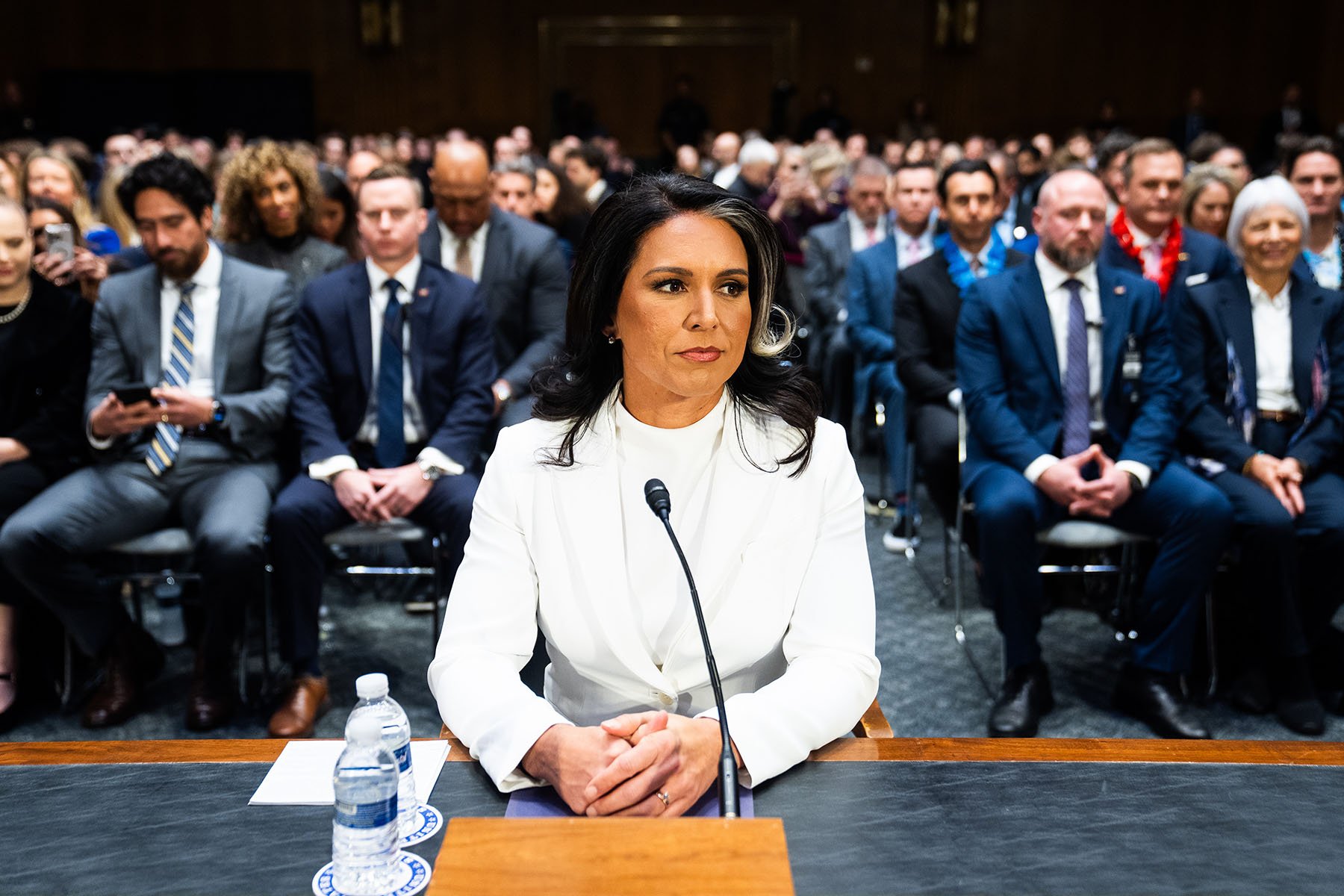The U.S. Senate voted Wednesday to confirm Tulsi Gabbard as the chief intelligence official in President Donald Trump’s administration.
Sen. Mitch McConnell of Kentucky was the lone Republican to oppose Gabbard’s confirmation as the director of national intelligence, which passed by a vote of 52 to 48. In the position, Gabbard will oversee all 18 U.S. intelligence agencies and play a critical role in determining what intelligence is presented to the president.
Gabbard’s confirmation to Trump’s Cabinet cements her political evolution from a progressive Democratic member of Congress to a Republican and Trump acolyte. Gabbard, who ran for president as a Democrat in 2020, later became a vocal critic of the party before leaving it. She announced she was joining the Republican Party and supporting Trump in October.
Gabbard appeared before the Senate Intelligence Committee in both open and closed sessions and was publicly questioned intensely on her qualifications and her views on a wide variety of topics. They included her past expressions of sympathy for Edward Snowden, who is responsible for one of the largest intelligence leaks in U.S. history; her controversial January 2017 trip to Syria and Lebanon, during which she met with the now-deposed Syrian dictator Bashar al-Assad; and her past comments appearing to blame NATO for Russia’s invasion of Ukraine. Many senators were not satisfied with her answers.
But despite her uneven reception at her hearing, Gabbard later won the support of skeptical Intelligence Committee Republicans including Sens. Susan Collins of Maine and Todd Young of Indiana. The committee voted along party lines to advance her nomination. Other Republicans who were seen as potential swing votes, like Sens. Lisa Murkowski of Alaska and Bill Cassidy of Louisiana, also got behind Gabbard’s nomination.
McConnell, the former Senate Republican leader, cited concerns with Gabbard’s statements on Snowden and Russia’s invasion of Ukraine, saying she “failed to demonstrate” her qualifications for the role.
“The nation should not have to worry that the intelligence assessments the President receives are tainted by a Director of National Intelligence with a history of alarming lapses in judgment,” he said in a statement.
At her hearing, Gabbard was asked about a controversial surveillance program that critics contend puts marginalized communities at disproportionate risk. Gabbard has shifted her stances on a variety of topics, including Section 702 of the Foreign Intelligence Service Act (FISA), which has been criticized by progressives and conservative libertarians alike.
As director of national intelligence, Gabbard would have broad jurisdiction to coordinate surveillance programs that advocates say could be used to target marginalized communities, mass protest movements and Trump’s political enemies.
Section 702 allows for wide-ranging warrantless government surveillance. The program is, in theory, supposed to be used only to gather intelligence on foreign nationals suspected of being connected to terrorist activity. Proponents of the program argue it’s critical for protecting national security, citing its role in helping intelligence officials thwart planned terrorist attacks.
But it has also been abused over the years. An opinion from the Foreign Intelligence Surveillance Court (FISC), released by the Office of the Director of National Intelligence (ODNI), found the FBI misused the vast database of communications collected under Section 702 to search for information on whether those arrested in Black Lives Matter protests had ties to suspected terrorists. Agents also improperly used the database to search for information on suspects in the January 6, 2021, attack at the Capitol, as well as 19,000 donors to a congressional campaign, the court found.
As a Democratic member of the House representing Hawaii’s 2nd District, Gabbard was a longtime critic of Section 702 and introduced legislation to repeal it. But ahead of her confirmation hearing in front of the Senate’s intelligence committee, Gabbard reversed her position, telling Punchbowl News: “I will uphold Americans’ Fourth Amendment rights while maintaining vital national security tools like Section 702 to ensure the safety and freedom of the American people.”
During the public portion of her testimony, Gabbard declined to say whether she thought a warrant should be required for 702 searches. In a separate confirmation hearing, Kash Patel — Trump’s nominee to lead the FBI — told senators that such a requirement would be unworkable and impractical. The contrast between Patel and Gabbard’s answers stuck out to analysts, especially in light of a recent court ruling that warrantless “backdoor” 702 searches violate the Fourth Amendment.
As the principal intelligence adviser to the president, a central part of the job of the director of national intelligence is to coordinate relevant information from the FBI director and the other leaders in the intelligence community and decide what makes it to the Oval Office.
Gabbard previously deployed to Iraq as a member of the Hawaii Army National Guard and later joined the U.S. Army Reserve, where she attained the rank of lieutenant colonel.






